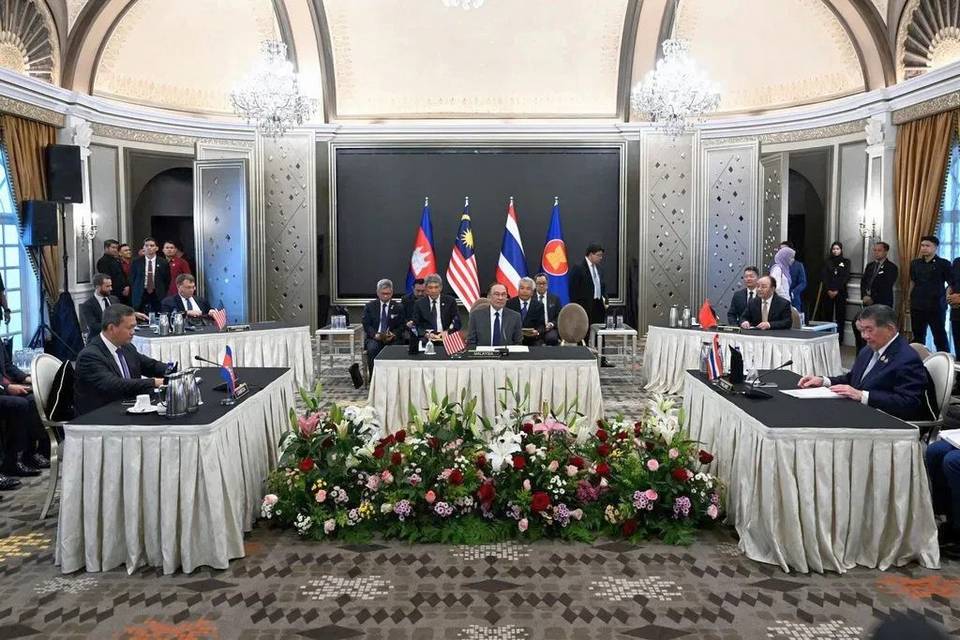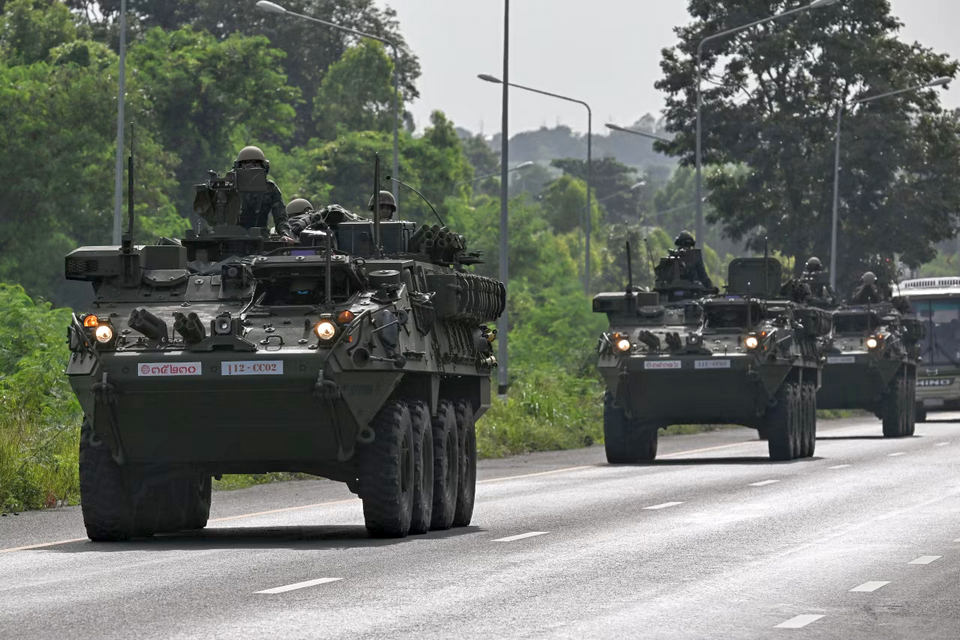0 Commenti
0 condivisioni
55 Views

Elenco
สำราวจพัทยาโซเชียล สังคมออนไลน์ของพัทยาและพื้นที่ใกล้เคียง
-
Effettua l'accesso per mettere mi piace, condividere e commentare!
-
 THEPATTAYANEWS.CO.THตร.บางละมุง รวบพ่อค้า พร้อมยาบ้า 50 เม็ดตำรวจชุดสืบบางละมุง รวบไอ้ตั้ม พ่อค้ายาเสพติดพร้อมยาบ้า 50 เม็ด วันที่ 28 กรกฎาคม 2568 พ.ต.อ.สราวุธ นุชนารถ ผกก.สภบางละมุง ได้มอบหมายให้ชุดสืบสวนลงพื้นที่ปฏิบัติการเชิงรุกเพื่อกวาดล้างยาเสพติดในพื้นที่ โดยมี พ.ต.ท.กรณ์พงษ์ สุขวิสิฏฐ์ รองผู้กำกับการสืบสวนฯ พ.ต.ท.วุฒิพงษ์ กาสา สารวัตรสืบสวนฯ และ ร.ต.อ.สมาน บุญแก้ว รองสารวัตรป้องกันปราบปรามฯ ร่วมกับกำลังเจ้าหน้าที่ชุดสืบสวนออกติดตามพฤติกรรมผู้ต้องสงสัย โดยทราบว่าผู้ต้องหารายนี้มีพฤติกรรมลักลอบจำหน่ายยาเสพติดให้กลุ่มวัยรุ่นในพื้นที่ กระทั่งสามารถจับกุมผู้ต้องหาได้ 1 ราย ทราบชื่อคือ นายบันเทิง หรือ ตั้ม อายุ 40 ปี โดยจับกุมได้บริเวณซอยนาเกลือ 1/1 หมู่ 2 ตำบลนาเกลือ อำเภอบางละมุง จังหวัดชลบุรี พร้อมของกลาง 1.ยาบ้าจำนวน 50 เม็ด บรรจุในถุงสีน้ำเงิน เบื้องต้นเจ้าหน้าที่ได้แจ้งข้อกล่าวหาในความผิดฐาน 1.มียาเสพติดให้โทษประเภท 1 (เมทแอมเฟตามีน) ไว้ในครอบครองโดยผิดกฎหมาย 2.เสพยาเสพติดให้โทษประเภท 1 […]0 Commenti 0 condivisioni 55 Views
THEPATTAYANEWS.CO.THตร.บางละมุง รวบพ่อค้า พร้อมยาบ้า 50 เม็ดตำรวจชุดสืบบางละมุง รวบไอ้ตั้ม พ่อค้ายาเสพติดพร้อมยาบ้า 50 เม็ด วันที่ 28 กรกฎาคม 2568 พ.ต.อ.สราวุธ นุชนารถ ผกก.สภบางละมุง ได้มอบหมายให้ชุดสืบสวนลงพื้นที่ปฏิบัติการเชิงรุกเพื่อกวาดล้างยาเสพติดในพื้นที่ โดยมี พ.ต.ท.กรณ์พงษ์ สุขวิสิฏฐ์ รองผู้กำกับการสืบสวนฯ พ.ต.ท.วุฒิพงษ์ กาสา สารวัตรสืบสวนฯ และ ร.ต.อ.สมาน บุญแก้ว รองสารวัตรป้องกันปราบปรามฯ ร่วมกับกำลังเจ้าหน้าที่ชุดสืบสวนออกติดตามพฤติกรรมผู้ต้องสงสัย โดยทราบว่าผู้ต้องหารายนี้มีพฤติกรรมลักลอบจำหน่ายยาเสพติดให้กลุ่มวัยรุ่นในพื้นที่ กระทั่งสามารถจับกุมผู้ต้องหาได้ 1 ราย ทราบชื่อคือ นายบันเทิง หรือ ตั้ม อายุ 40 ปี โดยจับกุมได้บริเวณซอยนาเกลือ 1/1 หมู่ 2 ตำบลนาเกลือ อำเภอบางละมุง จังหวัดชลบุรี พร้อมของกลาง 1.ยาบ้าจำนวน 50 เม็ด บรรจุในถุงสีน้ำเงิน เบื้องต้นเจ้าหน้าที่ได้แจ้งข้อกล่าวหาในความผิดฐาน 1.มียาเสพติดให้โทษประเภท 1 (เมทแอมเฟตามีน) ไว้ในครอบครองโดยผิดกฎหมาย 2.เสพยาเสพติดให้โทษประเภท 1 […]0 Commenti 0 condivisioni 55 Views -
 THEPATTAYANEWS.CO.THพัทยาเปิดไฟ PATTAYA CITY เป็นลายธงชาติไทย ส่งกำลังใจแนวชายแดนพัทยาเปิดไฟ PATTAYA CITY เป็นลายธงชาติไทย ส่งกำลังใจแนวชายแดน0 Commenti 0 condivisioni 47 Views
THEPATTAYANEWS.CO.THพัทยาเปิดไฟ PATTAYA CITY เป็นลายธงชาติไทย ส่งกำลังใจแนวชายแดนพัทยาเปิดไฟ PATTAYA CITY เป็นลายธงชาติไทย ส่งกำลังใจแนวชายแดน0 Commenti 0 condivisioni 47 Views -
 WWW.PATTAYAMAIL.COMWhat next in Thai-Cambodian border issues?The hope is that the spirit of cooperation between Thailand and Cambodia is a new dawn. EDITORIAL There is universal relief that the first, if tiny, steps have been taken in the troublesome Bangkok versus Phnom Penh de-escalation. The initial statement confirms an immediate ceasefire (technically from midnight), to be followed on the morning of July 29 by an informal meeting of army generals on both sides, plus possible involvement of Asean defence attaches. There will be Asean monitoring of the ceasefire according to most recent reports in Bangkok. A meeting of the “General Border Committee” has been set for August 4. Whether this is the same two-nation body as the hitherto named “Joint Boundary Commission”, or some kind of reincarnation with a third-party chairman, remains unclear. This body last met in June and failed to make any progress on four areas of Emerald Triangle with their ancient and hotly disputed temple sites. An encouraging feature of the acceptance speeches by acting Thai prime minister Phumtham Wechayachai and Cambodian premier Hun Manet was their thanks to both the United States and China in setting up the meeting. As expected, the White House press secretary was quick off the mark in praising Donald Trump and suggesting he be given the Nobel Peace Prize. China has yet to comment publicly about any detail. It is clear from Malaysian prime minister Anwar Ibrahim’s remarks that the 10-nation Asean bloc will operate a watching brief. Although Asean will not be directly involved in the nitty-gritty, it will act as in a quasi-independent role which neither Cambodia nor Thailand can ignore. Thus the mention of third party Asean defence attaches in the joint ceasefire communique is a positive sign. But now the hard work has to begin. There is the extremely thorny issue about procedure as Thailand believes only in two party resolution, whereas Cambodia has already referred the issue of the ancient Hindu temple of Preah Vihear to the UN’s Court of International Justice in The Hague for the third time. This now begs the question whether or not Cambodia will withdraw its request, especially as the ICJ has twice supported Cambodia over border disputes in 1962 and 2013. If not, it is difficult to see how Thailand can accept UN-related arbitration especially as she withdrew from recognizing ICJ rulings as early as 1960. The lines of control in some border regions are not precisely as they were two months ago. The Thai military has expanded its territory by occupying several mountain peaks or hills very close to disputed temples, whilst Cambodia appears to have occupied some rural districts whose ownership has been unclear for over a hundred years. A basic problem is that the two sides use different maps, some dating back to 1904 and 1907, to identify their own territory. Thus the two parties will need to agree very precisely on the removal of artillery and the withdrawal of personnel from districts which have not yet been discussed, let alone agreed on. Some will look to America and China to arbitrate if the territorial debates start becoming bitter again. But neither superpower will want to wade into the quagmire. Trump’s sole interest now will be whether the agreement sticks in the context of his warnings about 36 percent tariffs on both Thailand and Cambodia. He is not particularly close to Thailand which he has said is “drifting” towards the Chinese orbit, whilst he is intensely suspicious of China’s strong influence in Cambodia which he sees as a client state of Beijing. China won’t want the inevitable regional unpopularity if she shows bias in favour of Phnom Penh. So the best way forward is non-partisan and delicate neutrality by the Malaysian premier. As history appears to show, many ceasefires soon break down: Israel versus Hamas or Armenia versus Azerbaijan are recent examples. On the other hand, a 2025 ceasefire between nuclear states India and Pakistan has held well and there is always the example of the Korean peninsula which has avoided a full-blown wear since a 1953 ceasefire. Both Thailand and Cambodia have lots in common culturally, economically and even politically. But if historical grievances, political instability and stiff pride are centerstage, the outlook is indeed dark. Success will require compromise on both sides. Leaders of the two countries must be determined not to repeat 33 dead, 200 injured and 300,000 displaced persons. Next time, if there is one, will be much worse.0 Commenti 0 condivisioni 22 Views
WWW.PATTAYAMAIL.COMWhat next in Thai-Cambodian border issues?The hope is that the spirit of cooperation between Thailand and Cambodia is a new dawn. EDITORIAL There is universal relief that the first, if tiny, steps have been taken in the troublesome Bangkok versus Phnom Penh de-escalation. The initial statement confirms an immediate ceasefire (technically from midnight), to be followed on the morning of July 29 by an informal meeting of army generals on both sides, plus possible involvement of Asean defence attaches. There will be Asean monitoring of the ceasefire according to most recent reports in Bangkok. A meeting of the “General Border Committee” has been set for August 4. Whether this is the same two-nation body as the hitherto named “Joint Boundary Commission”, or some kind of reincarnation with a third-party chairman, remains unclear. This body last met in June and failed to make any progress on four areas of Emerald Triangle with their ancient and hotly disputed temple sites. An encouraging feature of the acceptance speeches by acting Thai prime minister Phumtham Wechayachai and Cambodian premier Hun Manet was their thanks to both the United States and China in setting up the meeting. As expected, the White House press secretary was quick off the mark in praising Donald Trump and suggesting he be given the Nobel Peace Prize. China has yet to comment publicly about any detail. It is clear from Malaysian prime minister Anwar Ibrahim’s remarks that the 10-nation Asean bloc will operate a watching brief. Although Asean will not be directly involved in the nitty-gritty, it will act as in a quasi-independent role which neither Cambodia nor Thailand can ignore. Thus the mention of third party Asean defence attaches in the joint ceasefire communique is a positive sign. But now the hard work has to begin. There is the extremely thorny issue about procedure as Thailand believes only in two party resolution, whereas Cambodia has already referred the issue of the ancient Hindu temple of Preah Vihear to the UN’s Court of International Justice in The Hague for the third time. This now begs the question whether or not Cambodia will withdraw its request, especially as the ICJ has twice supported Cambodia over border disputes in 1962 and 2013. If not, it is difficult to see how Thailand can accept UN-related arbitration especially as she withdrew from recognizing ICJ rulings as early as 1960. The lines of control in some border regions are not precisely as they were two months ago. The Thai military has expanded its territory by occupying several mountain peaks or hills very close to disputed temples, whilst Cambodia appears to have occupied some rural districts whose ownership has been unclear for over a hundred years. A basic problem is that the two sides use different maps, some dating back to 1904 and 1907, to identify their own territory. Thus the two parties will need to agree very precisely on the removal of artillery and the withdrawal of personnel from districts which have not yet been discussed, let alone agreed on. Some will look to America and China to arbitrate if the territorial debates start becoming bitter again. But neither superpower will want to wade into the quagmire. Trump’s sole interest now will be whether the agreement sticks in the context of his warnings about 36 percent tariffs on both Thailand and Cambodia. He is not particularly close to Thailand which he has said is “drifting” towards the Chinese orbit, whilst he is intensely suspicious of China’s strong influence in Cambodia which he sees as a client state of Beijing. China won’t want the inevitable regional unpopularity if she shows bias in favour of Phnom Penh. So the best way forward is non-partisan and delicate neutrality by the Malaysian premier. As history appears to show, many ceasefires soon break down: Israel versus Hamas or Armenia versus Azerbaijan are recent examples. On the other hand, a 2025 ceasefire between nuclear states India and Pakistan has held well and there is always the example of the Korean peninsula which has avoided a full-blown wear since a 1953 ceasefire. Both Thailand and Cambodia have lots in common culturally, economically and even politically. But if historical grievances, political instability and stiff pride are centerstage, the outlook is indeed dark. Success will require compromise on both sides. Leaders of the two countries must be determined not to repeat 33 dead, 200 injured and 300,000 displaced persons. Next time, if there is one, will be much worse.0 Commenti 0 condivisioni 22 Views
© 2025 พัทยาโซเชียล Pattaya.Social
 Italiano
Italiano



